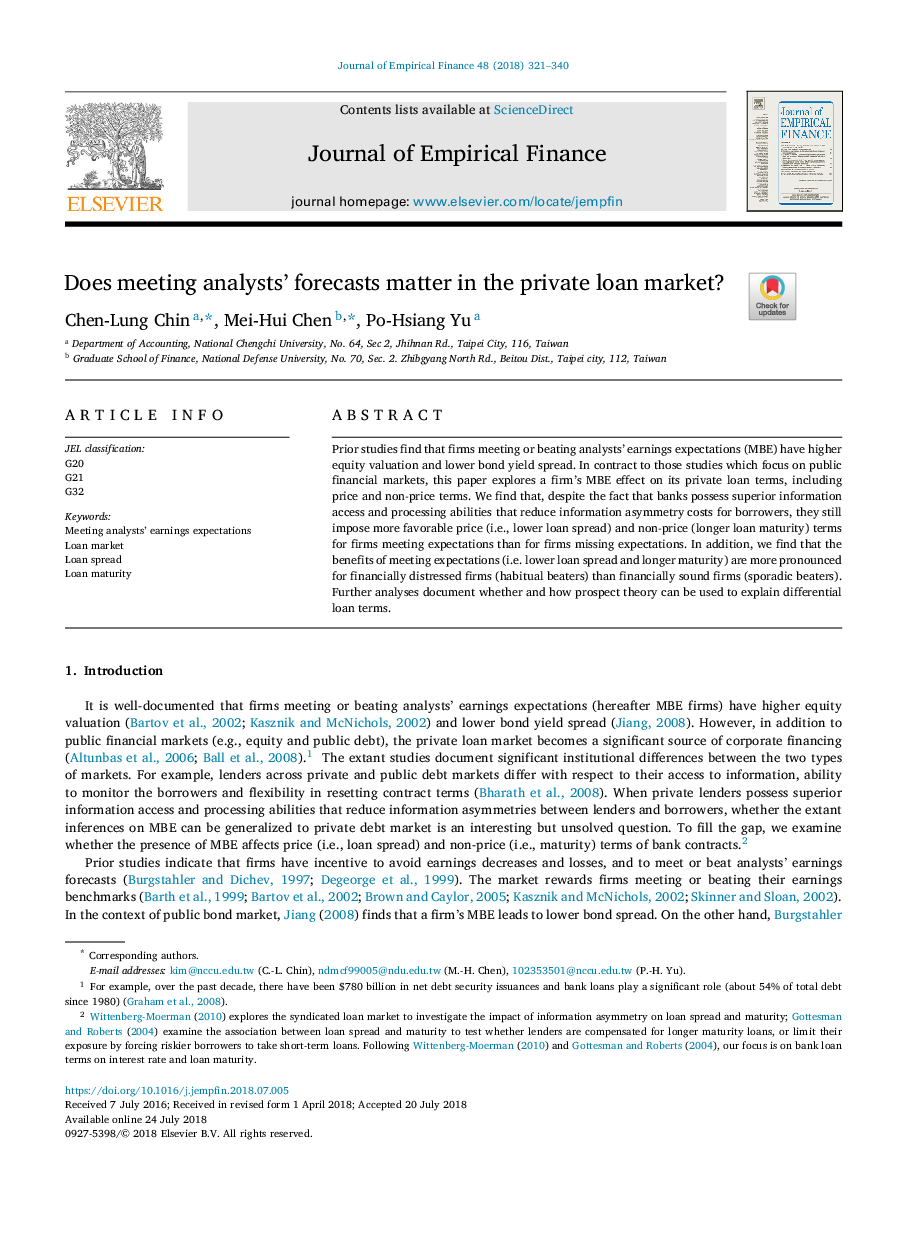| Article ID | Journal | Published Year | Pages | File Type |
|---|---|---|---|---|
| 7360507 | Journal of Empirical Finance | 2018 | 20 Pages |
Abstract
Prior studies find that firms meeting or beating analysts' earnings expectations (MBE) have higher equity valuation and lower bond yield spread. In contract to those studies which focus on public financial markets, this paper explores a firm's MBE effect on its private loan terms, including price and non-price terms. We find that, despite the fact that banks possess superior information access and processing abilities that reduce information asymmetry costs for borrowers, they still impose more favorable price (i.e., lower loan spread) and non-price (longer loan maturity) terms for firms meeting expectations than for firms missing expectations. In addition, we find that the benefits of meeting expectations (i.e. lower loan spread and longer maturity) are more pronounced for financially distressed firms (habitual beaters) than financially sound firms (sporadic beaters). Further analyses document whether and how prospect theory can be used to explain differential loan terms.
Keywords
Related Topics
Social Sciences and Humanities
Economics, Econometrics and Finance
Economics and Econometrics
Authors
Chen-Lung Chin, Mei-Hui Chen, Po-Hsiang Yu,
